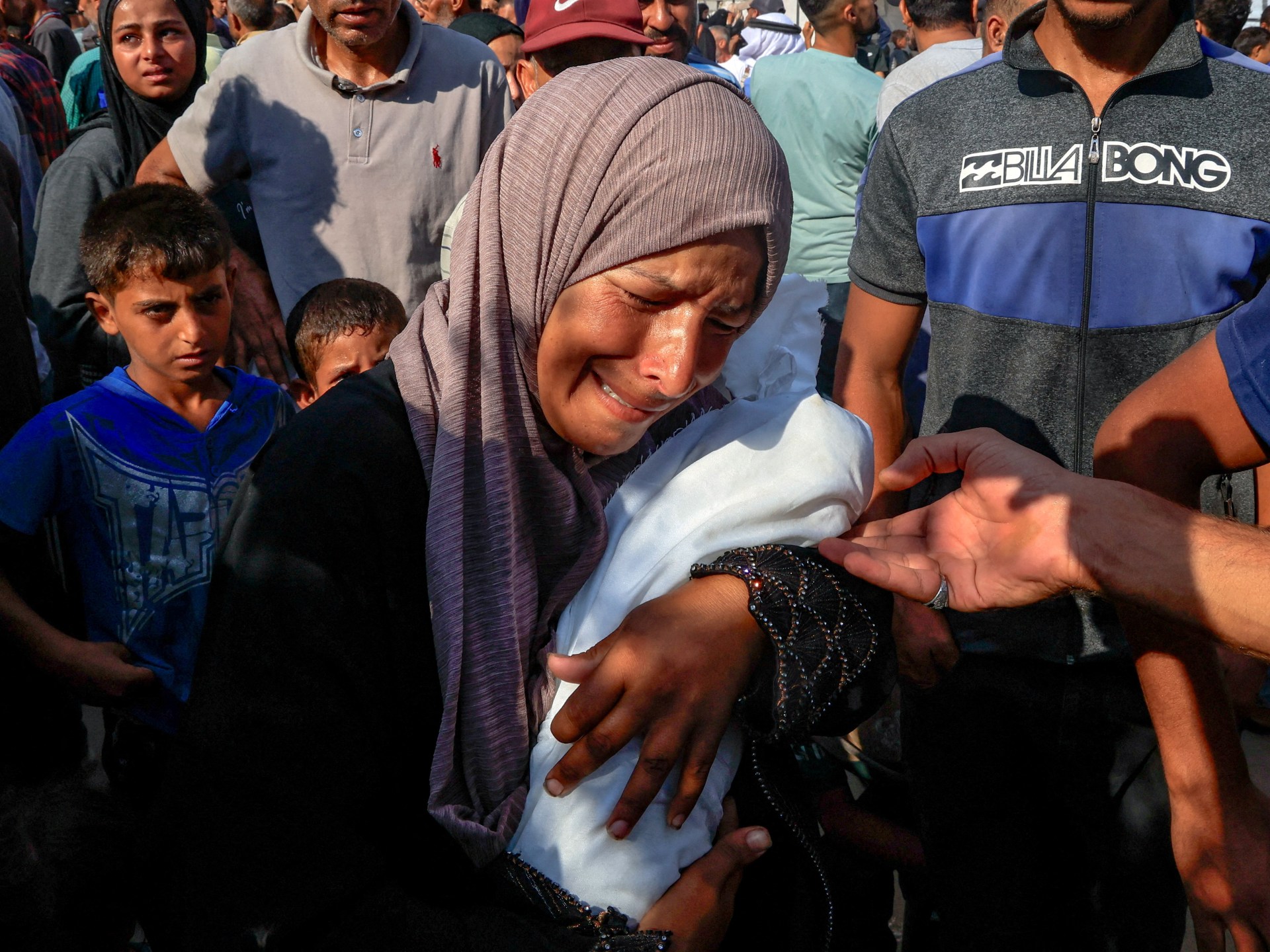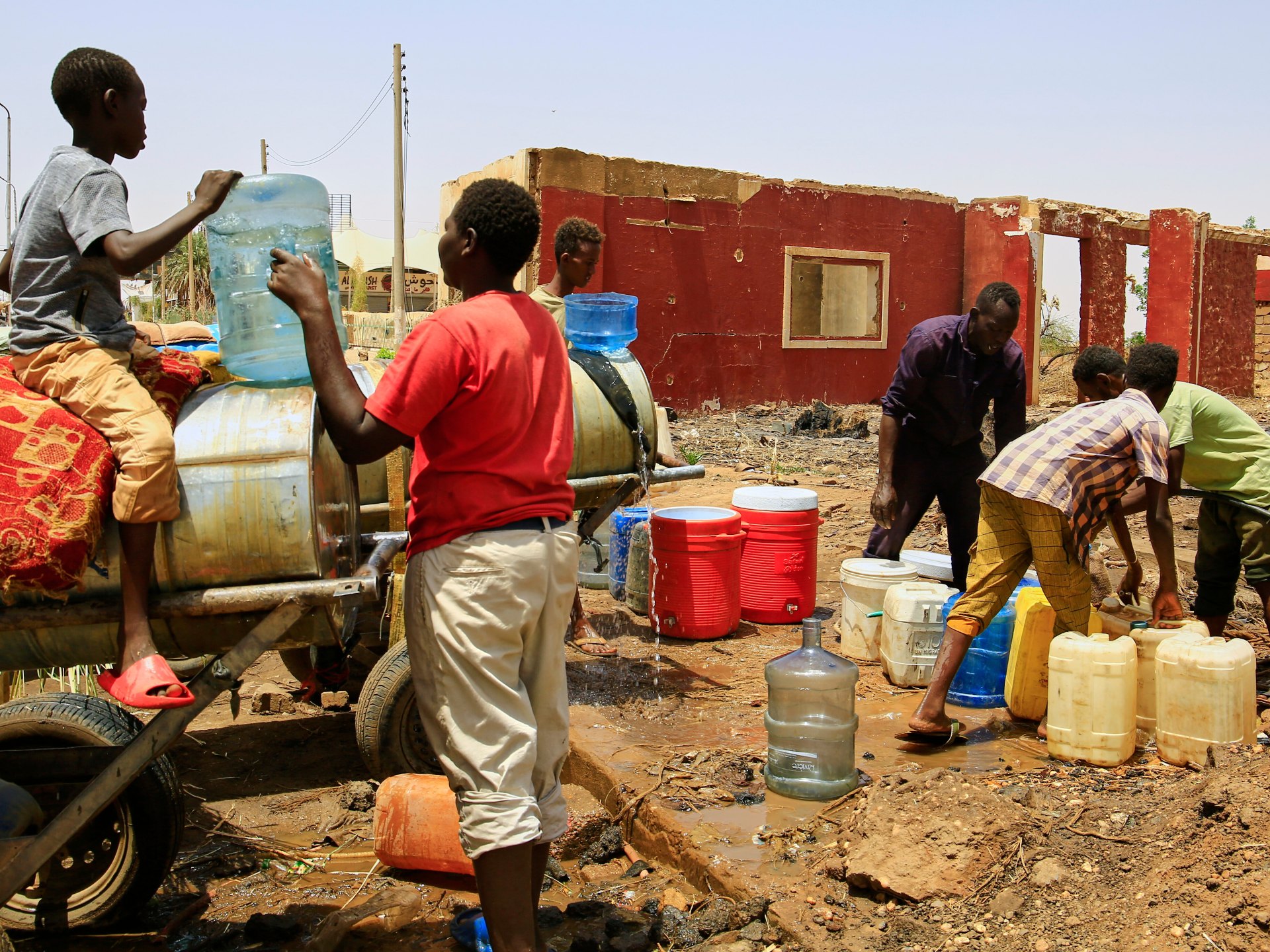Why is the UN not declaring famine in Gaza? | United Nations
On July 9, 2024, no fewer than 11 experts mandated by the United Nations Human Rights Council issued a mayday call about famine in Gaza.
“We declare that Israel’s intentional and targeted starvation campaign against the Palestinian people is a form of genocidal violence and has resulted in famine across all of Gaza. We call upon the international community to prioritise the delivery of humanitarian aid by land by any means necessary, end Israel’s siege, and establish a ceasefire,” their statement read.
Among the experts were Michael Fakhri, special rapporteur on the right to food, Pedro Arrojo-Agudo, special rapporteur on the human rights to safe drinking water and sanitation, and Francesca Albanese, special rapporteur on the situation of human rights in the Palestinian territory occupied since 1967. In their opinion, the death of children from starvation despite attempts to provide them with medical treatment in central Gaza left no room for equivocation.
While “famine” is generally understood as an acute lack of nutrition which would lead to starvation and death of a group of people or an entire population, there is no universally accepted definition of the concept in international law.
However, in 2004, the Food and Agriculture Organization (FAO) developed the Integrated Food Security Phase Classification (IPC), a five-stage quantitative humanitarian scale to map the food insecurity of a population.
The aim of this evaluation instrument is to spur collective action when food insecurity is identified and prevent such situations from reaching Level 5 on the IPC scale when famine is confirmed and declared. It has been used by FAO, the World Food Programme (WFP) and their partners as a scientific, data-driven tool for the past 20 years.
The IPC quantifiable criteria for declaring famine are gruesomely straightforward: 20 percent or more of households in an area face extreme food shortages with a limited ability to cope; acute malnutrition in children exceeds 30 percent; and the death rate exceeds two people per 10,000 per day. When these three benchmarks are met, “famine” needs to be declared. Although it does not trigger legal or treaty obligations, it is nevertheless an important political signal to compel an international humanitarian action.
If the aforementioned experts could conclude, in unison and over a year ago, that famine was present in the besieged Gaza Strip, it is hard to understand why the competent UN entities and executive heads have not yet reached the conclusion that Level 5 has been reached by July of this year, after over four months of a medieval siege.
In the era of real-time information transmitted to smartphones the world over, the reality of fatal levels of food insecurity is glaring and unconscionable. Images of emaciated bodies reminiscent of those taken in Nazi concentration camps tell the macabre tale of the reality in Gaza, blockaded by the uncompromising Israeli occupation forces.
And yet, even against the backdrop of UN agency for Palestinian refugees (UNRWA) warnings issued on July 20 that one million children in Gaza are facing the risk of starvation, “famine” is not yet declared.
On the surface, the explanation for not declaring “famine” in Gaza is that the necessary data used under the IPC scheme is not available. This may well be the case since Israel prevents access to the Gaza Strip to journalists and some humanitarian workers. IPC analysts, therefore, do not have primary data collection capabilities, which they have for the other 30 or so situations they monitor. But when the physical evidence is plain to see, when some reliable data is available, humanitarian considerations ought to override technical requirements.
However, in today’s UN system culture transfixed by a US administration gone amok against it, political considerations override the sense of duty and professional imperatives. Those at the helm know what is right (or one hopes so) — and what could be fatal to their persona and careers.
The US government’s ad hominem attacks against and sanctions imposed on Chief Prosecutor of the International Criminal Court (ICC) Karim Khan and UN Special Rapporteur Francesca Albanese are a vivid reminder that those jobs are not without risks. In the case of Albanese, her mandate is not even a “job” as she is carrying it out pro bono, which makes her steadfastness and courage all the more exemplary.
Admittedly, UN executive heads such as Secretary-General Antonio Guterres have more complex calculations to contend with, punitive actions by some powers on the organisation they lead being the principal one. As the saying goes, “money talks” and the US is the single largest contributor to the UN system.
But now that the US Congress has passed an unprecedented bill defunding the UN system, not doing what is right to shield the concerned UN organisations from Washington’s retaliatory wrath is no longer an acceptable cop-out, if it ever was.
It is important here to remember that the Statute of the ICC provides that starvation of civilians constitutes a war crime when committed in international armed conflicts. The full siege of Gaza since March 2, which is resulting in the starvation of civilians, first and foremost infants and children, falls squarely within the purview of Article 8 of the Statute, all the more so as it is the result of a deliberate and declaratory policy denying humanitarian assistance for months.
In this man-made famine, Palestinians are starving to death amid the deafening silence of the world, while tonnes of food are going to waste on the Egyptian side of the border while awaiting permission to enter Gaza. Israeli troops and foreign mercenaries hired by the Gaza Humanitarian Foundation have killed more than 900 Palestinians seeking aid at so-called humanitarian distribution sites. Some 90,000 children and women are in need of urgent treatment for malnutrition, according to the WFP; 19 people died of starvation in a single day on July 20, the Gaza Ministry of Health reported. And worse is yet to come.
Michael Fakhri, Pedro Arrojo-Agudo and Francesca Albanese said it a year ago — it is high time for the UN to officially declare that “famine” is in Gaza.
The views expressed in this article are the author’s own and do not necessarily reflect Al Jazeera’s editorial stance.

